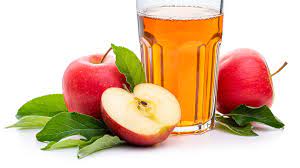
HEALTH BENEFITS OF APPLE
Introduction to Apple Health Benefits
Nutritional Composition of Apples
Vitamins
Minerals
Antioxidants
Digestive Health
Fiber Content
Improved Gut Health
Heart Health
Lowering Cholesterol Levels
Managing Blood Pressure
Weight Management
Low-Calorie Density
Satiety
Cancer Prevention
Antioxidant Properties
Anti-inflammatory Effects
Blood Sugar Regulation
Fiber and Sugar Content
Glycemic Index
Brain Health
Cognitive Function
Alzheimer’s Disease Prevention
Skin Health
Antioxidants and Collagen Production
Hydration
Exercise Performance
Enhanced Endurance
Muscle Recovery
Hydration
Water Content
Electrolytes
Bone Health
Vitamin C and Collagen Synthesis
Antioxidants and Inflammation Reduction
Vision Health
Antioxidants and Eye Health
Macular Degeneration Prevention
Immune System Support
Vitamin C and Antioxidants
Antibacterial Properties
Conclusion: Emphasizing Overall Health Benefits of Apples
Apple Health Benefits: A Nutritional Powerhouse

Introduction to Apple Health Benefits
Apples have earned their reputation as a nutritious fruit with numerous health benefits. From aiding digestion to boosting heart health and supporting weight management, apples are a versatile and delicious addition to any diet.
Nutritional Composition of Apples
Apples are rich in essential nutrients, including vitamins such as vitamin C, vitamin A, and various B vitamins. They also contain minerals like potassium, which is crucial for heart health, and antioxidants such as flavonoids and polyphenols.
Digestive Health
The high fiber content in apples promotes digestive health by aiding in regular bowel movements and preventing constipation. Additionally, the soluble fiber found in apples supports the growth of beneficial gut bacteria, contributing to a healthy gut microbiome.
Heart Health
Regular consumption of apples has been linked to improved heart health. The soluble fiber in apples helps lower cholesterol levels, while the potassium content helps regulate blood pressure, reducing the risk of cardiovascular diseases.
Weight Management
Despite their sweet taste, apples have a low calorie density, making them a perfect snack for those watching their weight. The apple’s fiber content also promotes satiety, helping control appetite and prevent overeating.
Cancer Prevention
Apples contain various antioxidants, including quercetin and catechins, which have been shown to have anticancer properties. These antioxidants help neutralize harmful free radicals in the body and reduce inflammation, lowering the risk of certain types of cancer.
Blood Sugar Regulation
The fiber content in apples slows down the digestion of carbohydrates, preventing rapid spikes in blood sugar levels. Additionally, the low glycemic index of apples makes them a suitable choice for individuals with diabetes or those aiming to manage their blood sugar levels.
Brain Health
The antioxidants present in apples have been associated with improved cognitive function and a reduced risk of neurodegenerative diseases like Alzheimer’s. Regular consumption of apples may help maintain brain health and cognitive function as we age.
Skin Health
Apples are a good source of antioxidants, including vitamin C, which plays a vital role in collagen production and skin health. Additionally, the hydration provided by the water content in apples helps keep the skin hydrated and supple.
Exercise Performance
The natural sugars in apples provide a quick source of energy, making them an excellent pre-workout snack. Additionally, the antioxidants in apples help reduce oxidative stress and inflammation, aiding in muscle recovery post-exercise.
Hydration
Apples have a high water content, contributing to hydration and electrolyte balance in the body. Eating apples can help replenish fluids lost through sweating and physical activity, making them an ideal snack for staying hydrated.
Bone Health
Apples contain nutrients like vitamin C, which plays a crucial role in collagen synthesis, essential for maintaining bone health and integrity. Additionally, the antioxidants in apples help reduce inflammation, which is beneficial for overall bone health.
Vision Health
The antioxidants present in apples, particularly flavonoids and vitamin C, help protect the eyes from oxidative damage and reduce the risk of age-related macular degeneration, a leading cause of vision loss in older adults.
Immune System Support
Apples are rich in vitamin C, a powerful antioxidant known for its immune-boosting properties. Regular consumption of apples can help strengthen the immune system and protect against infections and illnesses.
Conclusion: Emphasizing Overall Health Benefits of Apples
In conclusion, apples are not only delicious but also offer a wide range of health benefits. From promoting digestive health to supporting heart health, weight management, and beyond, incorporating apples into your diet can contribute to overall well-being and vitality.
FAQs (Frequently Asked Questions):
Are all apple varieties equally nutritious?
While nutritional content may vary slightly between apple varieties, all apples are generally nutritious and offer health benefits.
Can apple consumption help with weight loss?
Yes, apples are low in calories and high in fiber, making them a filling snack that can aid in weight management when included as part of a balanced diet.
How many apples should I eat per day to reap the health benefits?
While there’s no specific recommendation, incorporating one to two apples into your daily diet can provide significant health benefits.
Are there any risks associated with eating apples?
Apples are generally safe for consumption but may cause discomfort for some individuals with certain digestive conditions like irritable bowel syndrome (IBS).
Is it better to eat whole apples or drink apple juice for health benefits?
Eating whole apples is preferred over consuming apple juice, as whole apples contain more fiber and nutrients while being lower in sugar
